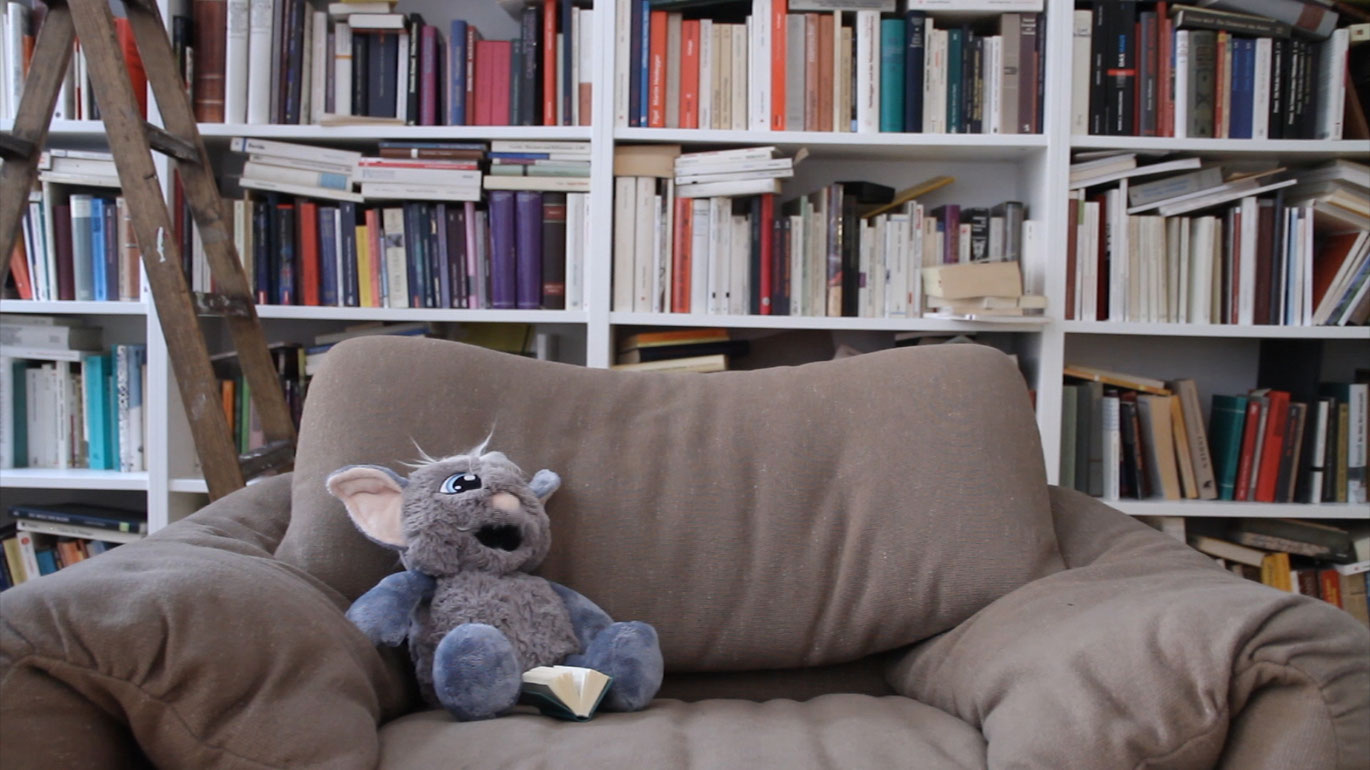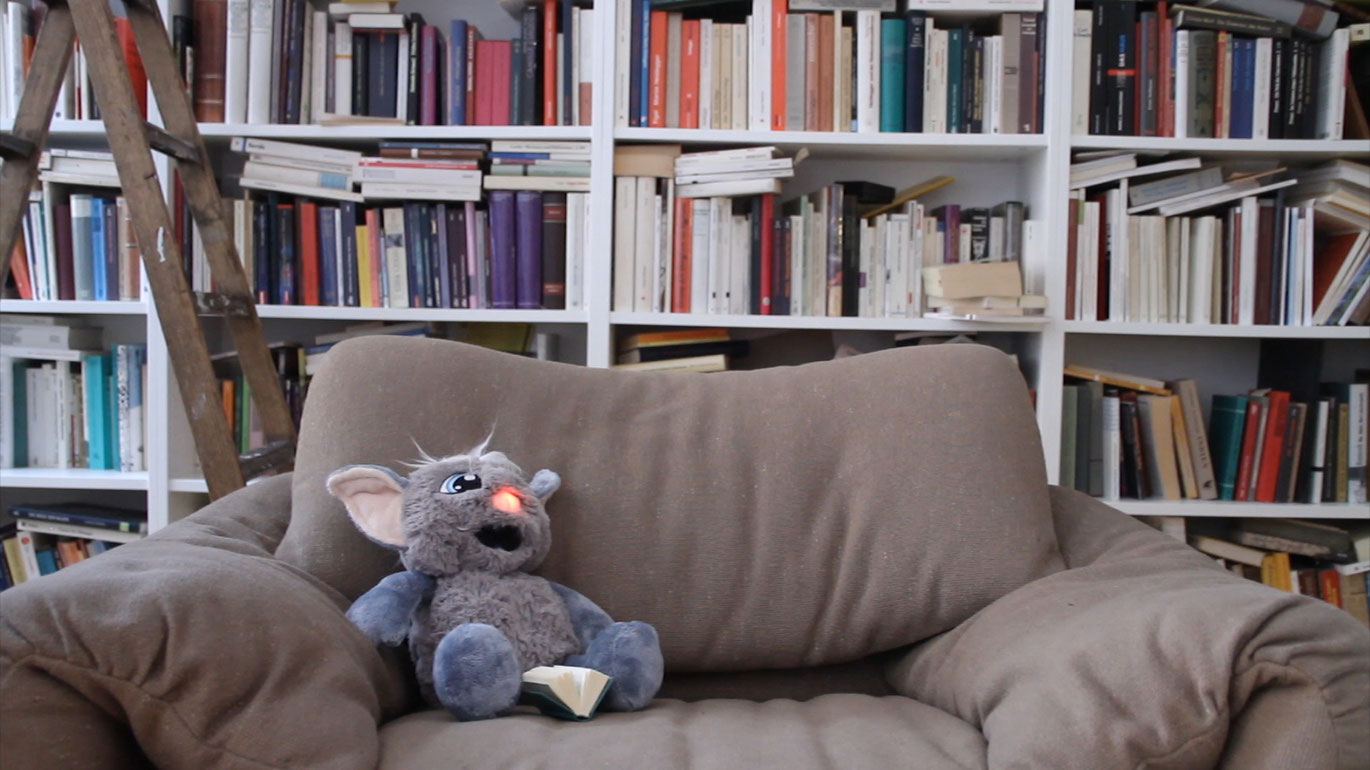Autumn
Human beings are able to learn. Animals also. Plush toys, too?
A non-visible teacher tries to teach Rainer Maria Rilke´s poem Autumn to a plush toy. In the process, the stuffed animal develops an exclusively linguistically mediated personality of its own. It follows the text, fails, refuses, revolts. The teacher, in turn, yells, flatters, screams. An absurd pedagogy en miniature. (Meinhard Rauchensteiner)
A stuffed animal on a sofa, behind it a detail of a bursting bookshelf. The camera, which will now do no more than record this image for three minutes, has apparently landed in the living room of an avid reader. From off screen, the voice of the director recites a poem that works well in every middle-class household: Rainer Maria Rilke´s Herbst (Autumn) from 1902. Eleven verses tell of life’s transience. Everything dies: the leaves on the trees, the stars in the universe, and naturally, all of us. Only God remains, and watches, Rilke suggests.
The verses have to be recited appropriately to unfurl the inherent Weltschmerz. But how would that be nowadays? In any case, the voice from off screen exaggerates right from the start and already barks out the first words "The leaves fall" as though a General in the barrack yards was trying to drive something home to his subordinates. What is actually happening is the unfolding of a learning game between absent person and present machine: the human, as a voice that is considered genuine, provides the verses divided into word groups and a tinny, artificial sounding voice tries to mimic them. The stuffed mouse on the sofa seems synchronized with the robot-like voice. Although its mouth does not move as the words are provided, its nose shines red from the outside like the record button on a recording machine. The "talking monster," as the toy is called in the credits, swallows individual words like a dumb high-school student. The school master voice caresses it gently at times, and other times rules over it annoyed, torturing it with the repetition of individual words. With that, the film topples into the absurd. "The absurd person," says Dirk Baecker, "is one step further than the ironic, just as the ironic person is one step further than the serious one." (Thomas Edlinger)
Herbst
2015
Austria
3 min


